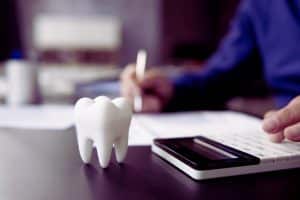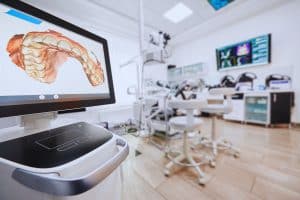As a dentist, you dedicate your time and expertise to providing quality dental care to your patients. While your focus is on oral health, it’s essential not to overlook the importance of managing your practice’s finances effectively. One powerful tool at your disposal is tax deductions. You can adopt a broad range of possibilities and strategies to manage your deductible business expenses, one of which is taking advantage of Section 199A. By maximizing your deductions, you can lower your tax liability, increase savings, and reinvest in the growth and development of your practice.
In this blog post, we will explore the key aspects of Section 199A and help you better understand how it can benefit your business.
What is Section 199A?
Section 199A, also known as the Qualified Business Income (QBI) deduction, is a provision displayed by The Tax Cuts and Jobs Act of 2017 that allows qualifying businesses to deduct up to 20% of their qualified business income from their taxable income. This deduction aims to provide tax relief to eligible self-employed individuals and small business owners, and it’s applicable to pass-through entities, such as sole proprietorships, partnerships, S corporations, and specific rental properties. It is designed to provide tax parity between businesses that operate as C corporations and those structured as pass-through entities.
Who is eligible for the Section 199A deduction?
Most self-employed individuals and small business owners can benefit from the Section 199A deduction. However, there are specific limitations and restrictions based on the type of business and the taxpayer’s income level. Some companies, known as specified service trades or businesses (SSTBs), face additional limitations on the deduction if their income exceeds certain thresholds.
Understanding qualified business income (QBI):
Qualified business income (QBI) is a key component of the Section 199A deduction. It refers to the net income generated by a qualified trade or business, excluding investment income and certain specified items. It is essential to accurately calculate and document your QBI to determine the eligible deduction amount.
Limitations and phase-outs:
While the Section 199A deduction offers significant tax benefits, it is subject to certain limitations and phase-outs. However, there are limitations to consider:
- Deduction limitation based on wages: The deduction is limited to either 50% of wages paid by the business or 25% of wages plus 2.5% of the fixed asset base.
- Phase-out for service businesses: Service businesses, including dental practices, are subject to phase-ins and phase-outs of the deduction based on income. This means that while other types of businesses may easily qualify for the full 20% deduction, those in healthcare have limitations based on their income levels.
The deduction begins to phase out for married taxpayers with taxable income exceeding $315,000 ($157,500 for single filers). For SSTBs, the phase-out range is between $315,000 and $415,000 for married taxpayers ($157,500 to $207,500 for single filers).
Strategies to maximize the Section 199A deduction:
Generally, to maximize the deduction, a simple approach is for a qualified trade or business owner to be an S corporation and pay themselves a salary equal to 28.571% of QBI. This magic number helps optimize the deduction regardless of the QBI amount. A tax planning based on these numbers may maximize the Section 199A deduction for taxpayers close to the phase-in taxable income amounts.
Dental Practice owners can maximize the Section 199 deductions by following these steps:
- Optimize business entity structure: Ensure that your dental practice is organized as a pass-through entity, such as an S corporation, partnership, or limited liability company (LLC). This allows the deduction to pass through to your personal tax return. Consulting with a tax professional can help you assess whether an entity change or restructuring is beneficial for optimizing your deduction.
- Income and wage planning: Monitoring your taxable income and wages can be crucial to maximizing the deduction. Keep an eye on your taxable income as the Section 199A deduction starts to phase out for married taxpayers when it exceeds $315,000 and is fully phased out at $415,000. If possible, consider strategies to keep your taxable income below these thresholds to maximize the deduction.
- Consider retirement plans: Explore contributing to a retirement plan, such as a 401(k) or SEP IRA, to reduce your taxable income. Contributions to retirement plans can lower your taxable income and keep it within the phase-out range for the Section 199A deduction.
- Separate SSTB and non-SSTB income: If you have multiple sources of income, try to segregate SSTB income (subject to limitations) from non-SSTB income (eligible for the deduction). This can involve creating separate entities or restructuring your practice to generate revenue from non-SSTB activities.
- Consider employing family members: If you have family members who can contribute to your dental practice, consider hiring them and paying them a reasonable salary. This not only helps with business operations but can also reduce your overall taxable income.
- Seek professional advice: Work closely with a knowledgeable tax professional or CPA who understands the intricacies of the Section 199A deduction and can provide tailored guidance based on your specific circumstances. It’s important to note that tax laws can change, so staying updated and consulting with a tax professional is crucial to ensure you are taking advantage of all available deductions and maximizing your tax benefits.
Understanding the intricacies of the new Section 199A deduction is essential for self-employed individuals and small business owners seeking to reduce their tax burden. By leveraging the benefits of this deduction, you can enjoy significant tax savings. Remember to consult with a qualified tax professional who can provide personalized guidance based on your unique business circumstances.
Here at Dental CPA, we have sophisticated tax planning techniques to minimize the impact of taxes on your dental practice. As a highly experienced CPA firm, our tax accountants are well-versed in federal and state tax law and will work hard to find you significant savings. We’ll engage every possible tax break, deduction, and incentive available to reduce your tax burden.




